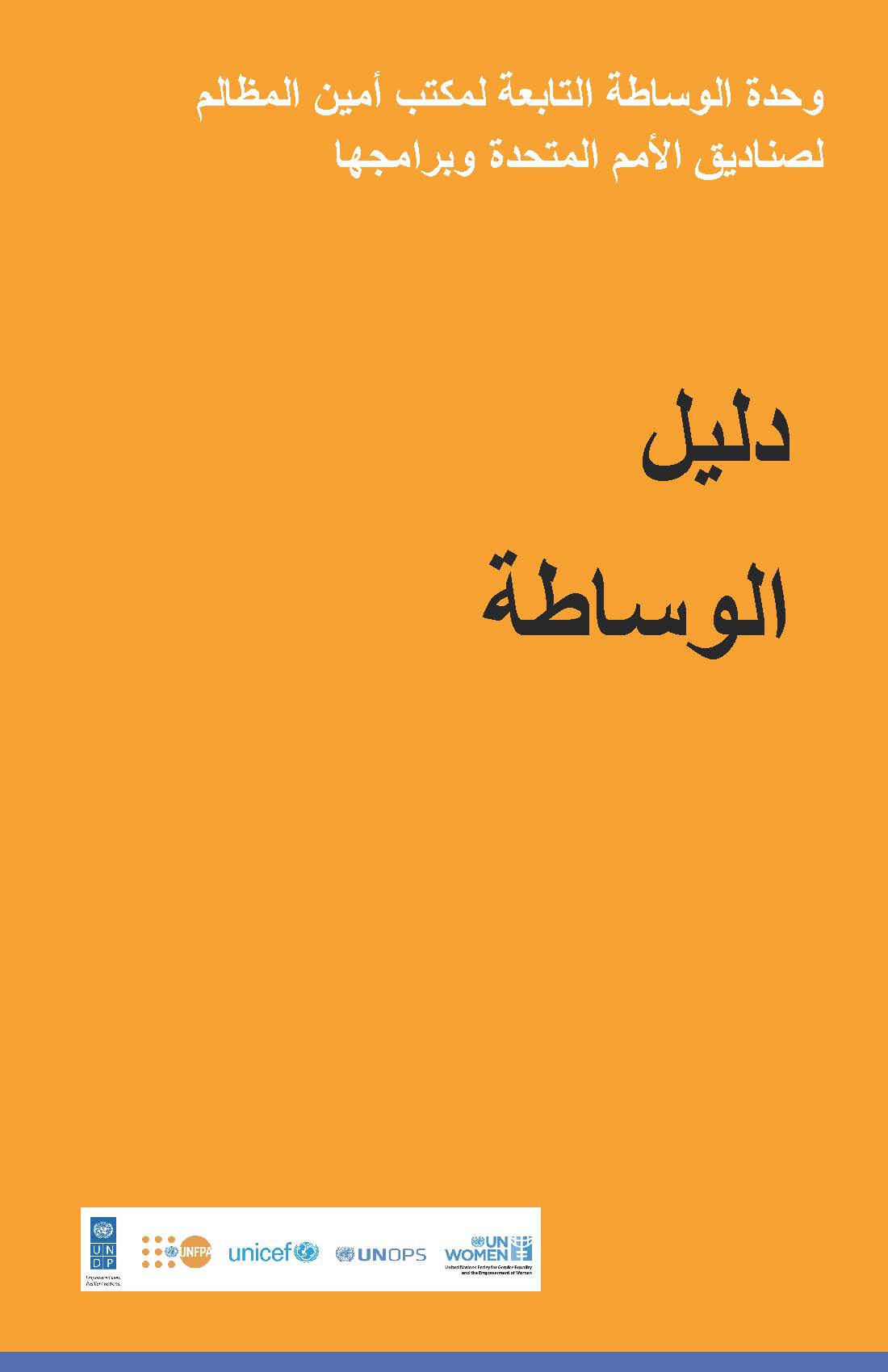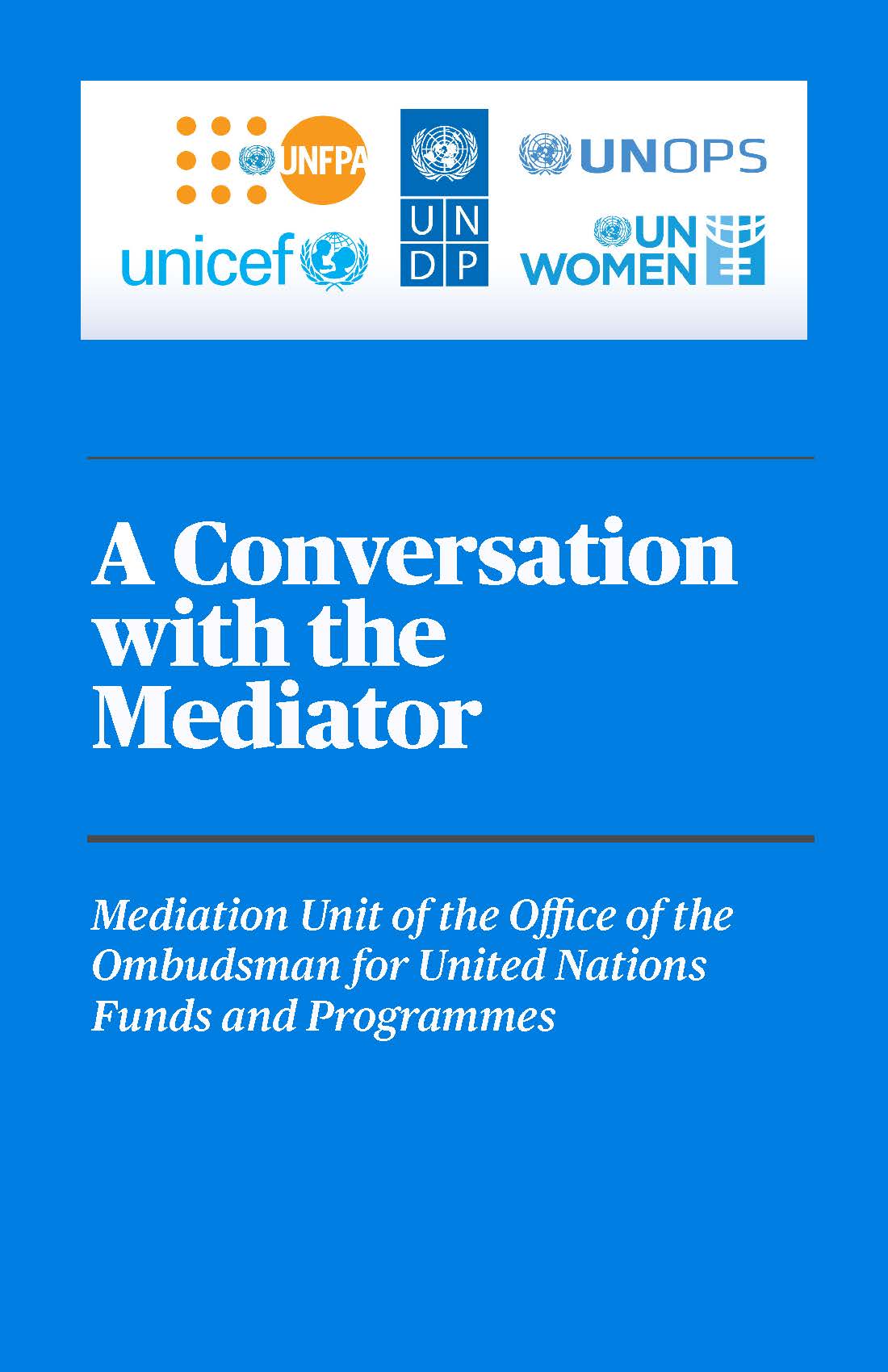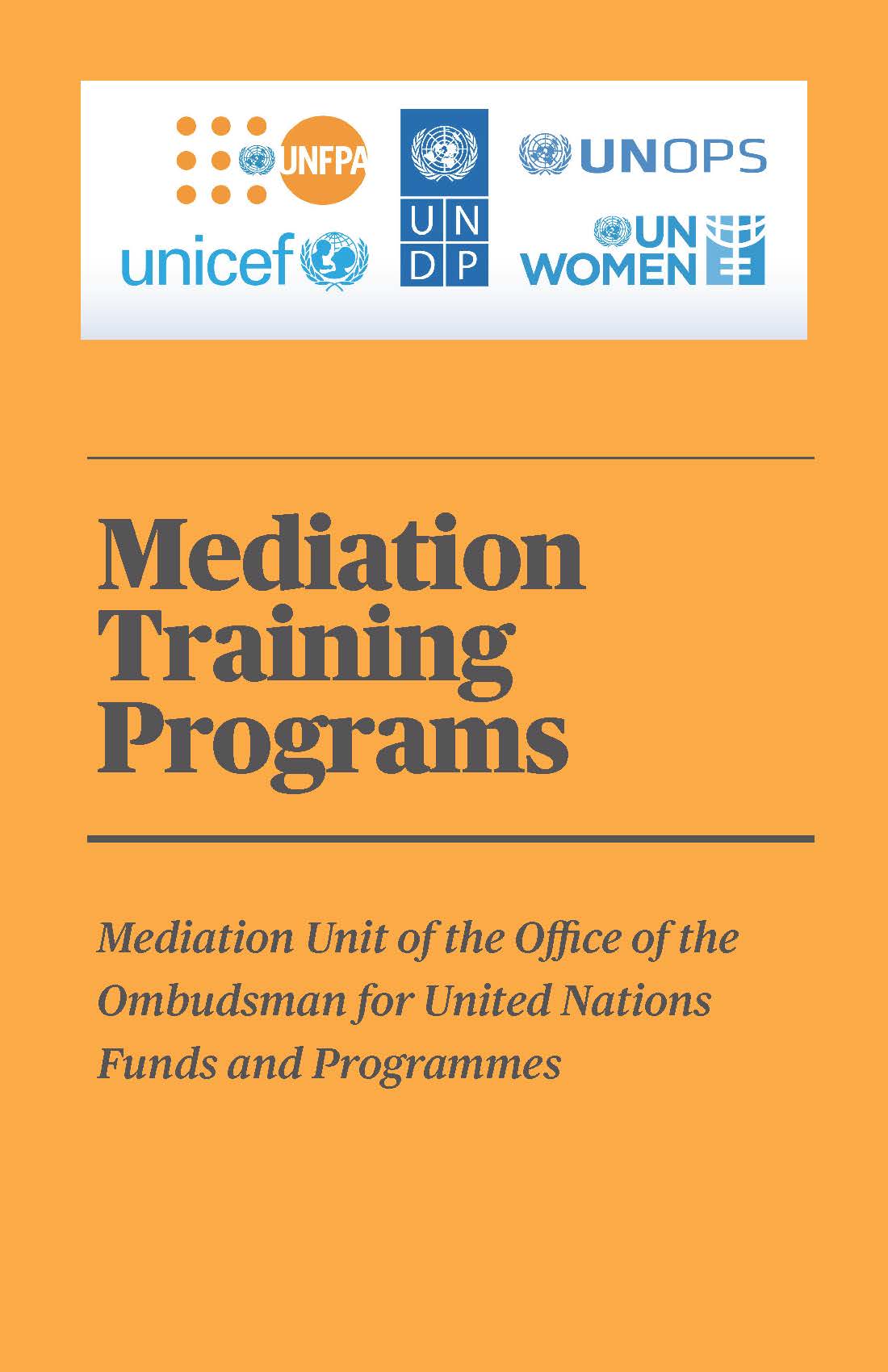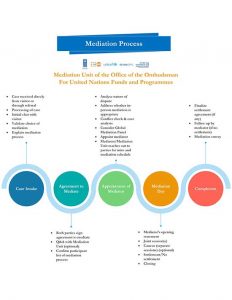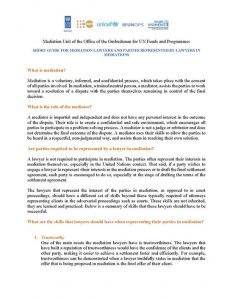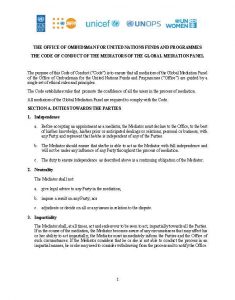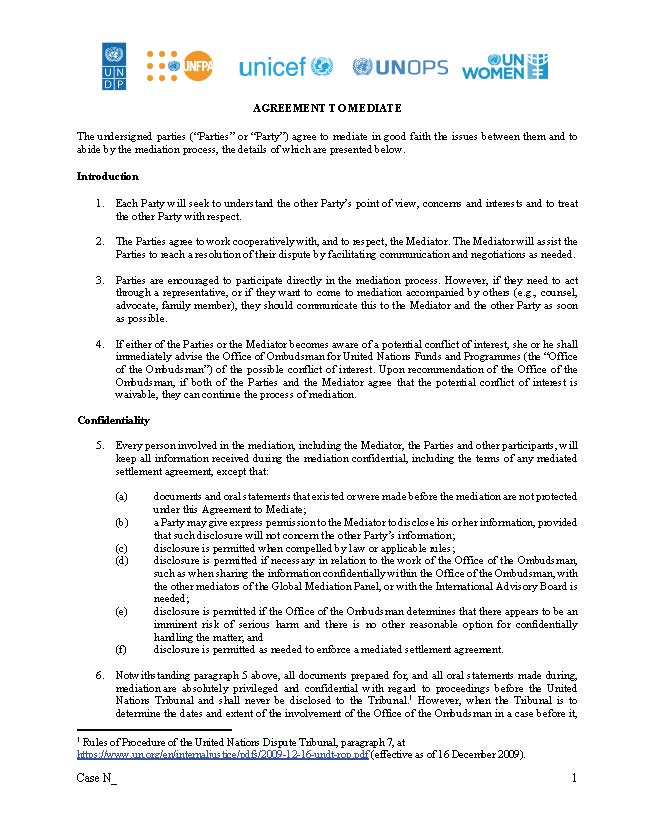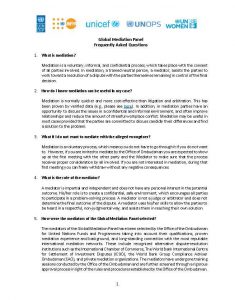ما هي الوساطة؟
الوساطة هي وسيلة لتسوية النزاعات، تجري في إطار من السرّية، حيث يساعد طرف ثالث محترف محايد – الوسيط – أطراف النزاع على إجراء حوار مُجدٍ، ومناقشة القضايا. ممّا يساعد في الكشف عن احتياجاتهما واهتماماتهما الأساسية، والتفكير في الخيارات المتاحة، للتوصل إلى حل ودي.
تستند جميع عمليات الوساطة التي تجريها وحدة الوساطة التابعة لمكتب أمين المظالم لصناديق الأمم المتحدة وبرامجها على المبادئ الأساسية الأربعة للمكتب: السرِّية، النزاهة والحياد، الاستقلال وعدم التمسك بالرسّميات.
يعمل المكتب وفق مبادئ المشاركة الطوعية تقرير المصير والموافقة المستنيرة.
دور الوسيط
يتمثل دور الوسيط في تسهيل المناقشة بين الأطراف ومساعدتهم للتوصل إلى إلى حل وديّ، بروح من الثقة. لا يتعين على الوسيط أن ينحاز إلى جانب أو يفضل وجهة نظر على أخرى.
بل يخلق فرصة للأطراف لإجراء حوار بنّاء بمهنية كونه وسيط محايد ومستقل.
من يمكنه طلب الوساطة؟
بإمكان الموظفين العاملين في برنامج الأمم المتحدة الإنمائي، صندوق الأمم المتحدة للسكان، منظمة الأمم المتحدة للطفولة، مكتب الأمم المتحدة لخدمات المشاريع، وهيئة الأمم المتحدة للمرأة، الذين يسعون إلى حل نزاع في مكان العمل، أن يطلبوا خدمات الوساطة من وحدة الوساطة التابعة للمكتب ، بغض النظرعن ترتيباتهم التعاقدية (بما في ذلك المديرين والموظفين الآخرين والاستشاريين والمتدربين). يحتفظ المكتب في نهاية المطاف بالسلطة التقديرية لتحديد ما إذا كانت القضية مناسبة للوساطة. في حال إتّضح ان المسألة ليست قابلة للوساطة، فقد يختار الزائر طلب المساعدة من أمين المظالم، لمناقشة القضايا المتعلقة به/بها. يحتفظ أي طرف مشارك في الوساطة بالحق أن يلجأ إلى رفع تظلّمه إلى العملية الرسمية.
كيف تطلب الوساطة؟
عادةً ما تبدأ الوساطة بطرف ما يبدأ العملية بإرسال بريد إلكتروني إلى مكتب أمين المظالم ombudsmediation@fpombudsman.org مع وصف موجز للموقف الذي يواجهه هذا الطرف. جميع الاتصالات مع المكتب ، بما في ذلك هذا الاتصال الأولي ، سرية للغاية. بمجرد التعبير عن الحاجة إلى الوساطة وتقرر وحدة الوساطة أن الوساطة مناسبة ، تحصل وحدة الوساطة على موافقة كلا الطرفين للمباشرة في عملية الوساطة.







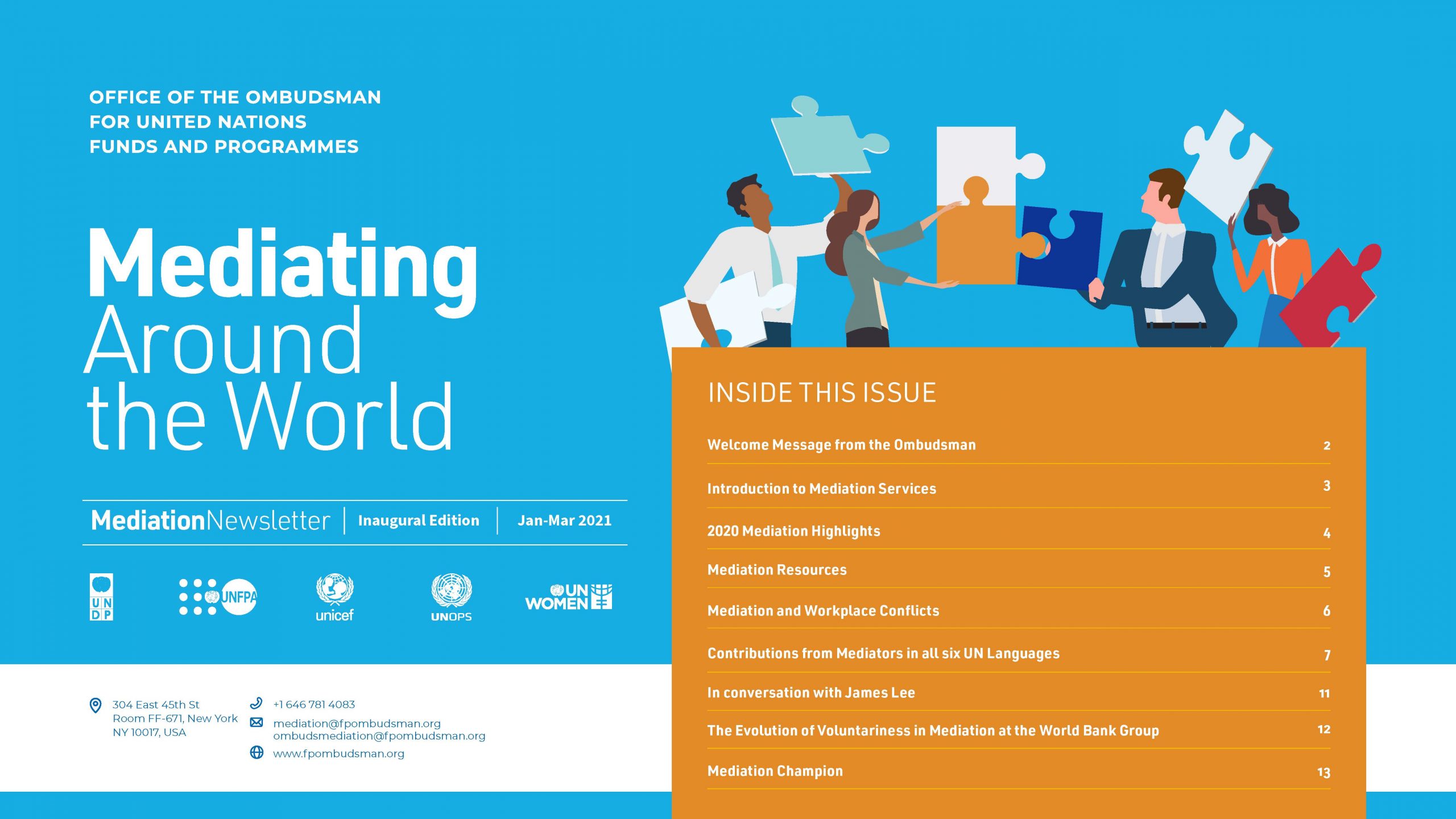
![Mediation Newsletter - Arabic_20042021[1]](https://fpombudsman.org/wp-content/uploads/2021/05/Mediation-Newsletter-Arabic_200420211-scaled.jpg)
![Mediation Newsletter - Chinese_23042021[1]](https://fpombudsman.org/wp-content/uploads/2021/05/Mediation-Newsletter-Chinese_230420211-scaled.jpg)
![Mediation Newsletter - French_20042021[1]](https://fpombudsman.org/wp-content/uploads/2021/05/Mediation-Newsletter-French_200420211-scaled.jpg)
![Mediation Newsletter - Russian_20042021[1]](https://fpombudsman.org/wp-content/uploads/2021/05/Mediation-Newsletter-Russian_200420211-scaled.jpg)
![Mediation Newsletter - Spanish_20042021[1]](https://fpombudsman.org/wp-content/uploads/2021/05/Mediation-Newsletter-Spanish_200420211-scaled.jpg)
